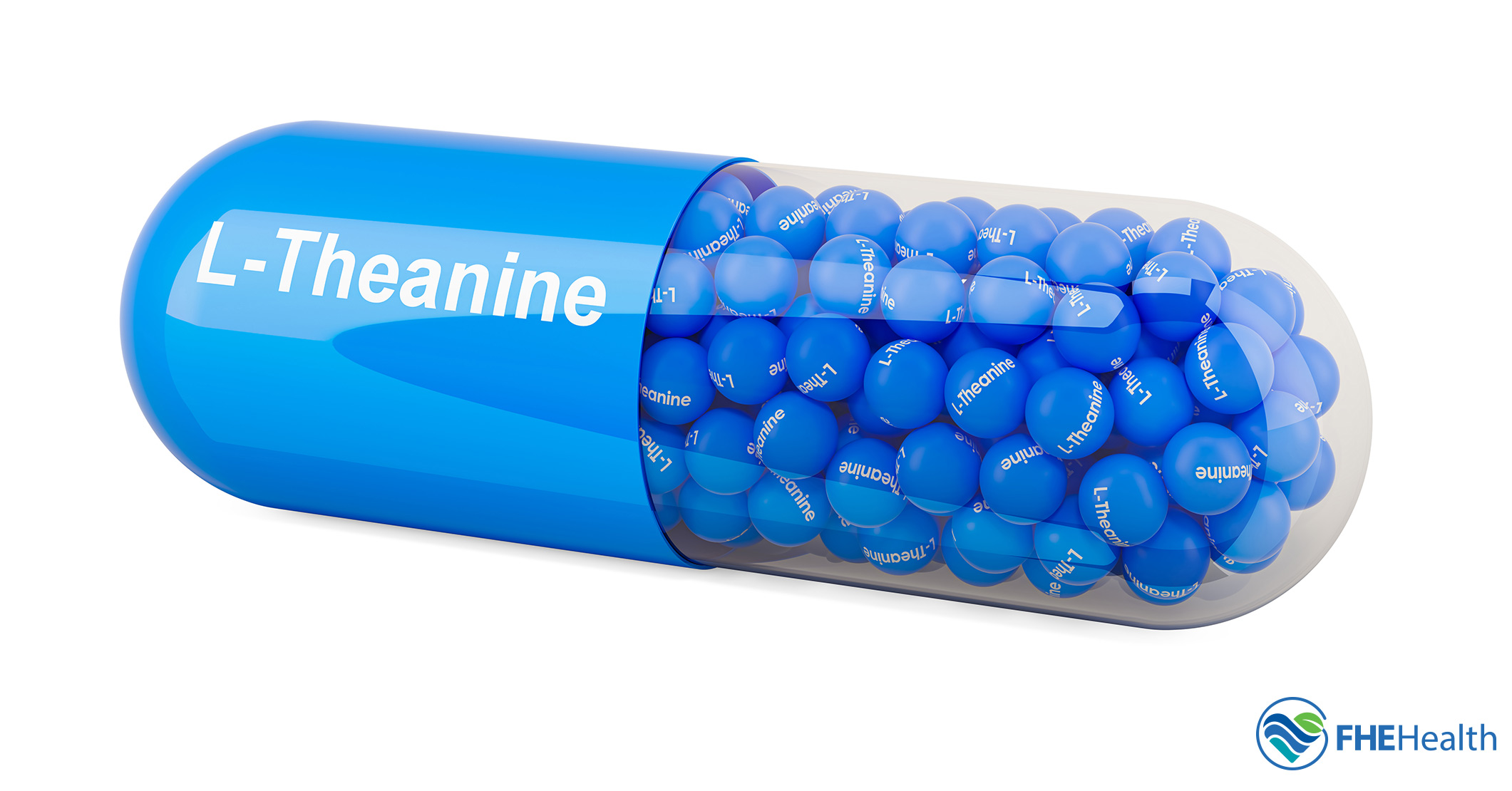
Managing your mental health can be tough, and many people are looking for a little extra support from supplements or medications. In terms of natural compounds with potential mental health benefits, L-theanine has garnered increasing attention for its calming and cognitive-enhancing properties.
In this article, we delve into L-theanine’s mental health benefits, its role in brain function and its cognitive effects.
Introduction to L-Theanine and Its Properties
L-theanine is an amino acid commonly found in tea leaves, particularly in green tea. Thanks to its unique properties, it’s become a subject of interest in the field of mental health. Known for its ability to cross the blood-brain barrier, L-theanine interacts with neurotransmitters in the brain, influencing mood and cognitive function.
Exploring L-Theanine’s Mental Health Benefits and Effects
Numerous studies conducted in recent years have shed light on the potential of L-theanine to help with mood regulation and modulate neurotransmitters, particularly serotonin and dopamine. With these effects, L-theanine may be useful in influencing the delicate balance of chemicals within the brain that contribute to overall mood.
Serotonin and L-Theanine
Serotonin, referred to as the “feel-good” neurotransmitter, plays a pivotal role in maintaining emotional well-being and regulating mood. L-theanine has demonstrated the capacity to enhance serotonin levels, contributing to a more positive and stable emotional state.
This may have implications for conditions characterized by mood imbalances, such as depression or mood disorders. Increasing serotonin activity in the brain is often one of the goals of medications used to treat these disorders.
Dopamine and L-Theanine
Dopamine, another neurotransmitter crucial for mood and motivation, is also subject to the balancing influence of L-theanine. Studies suggest that L-theanine may help to regulate dopamine levels, which could potentially lead to a more balanced and resilient emotional state. The impact on both serotonin and dopamine underscores L-theanine’s potential as a mood-regulating agent.
GABA and L-Theanine
Gamma-aminobutyric acid (GABA) is an important inhibitory neurotransmitter in the central nervous system. It plays a key role in regulating excitability in your neurons — in other words, when GABA binds to its receptors, the effect is a sense of relaxation.
While L-theanine doesn’t directly increase GABA levels, it does seem to enhance the activity of GABA receptors. With more receptors active, more of the GABA neurotransmitter can bind to them, resulting in increased feelings of relaxation and calmness.
The interaction between L-theanine and GABA is thought to contribute to the compound’s anxiolytic effects, meaning it has the potential to reduce anxiety. By boosting the activity of GABA receptors in the brain, L-theanine may help balance excitation and relaxation mechanisms, leading to a calming effect without inducing sedation or impairing cognitive function.
L-Theanine and Mood
Because it promotes relaxation while maintaining mental clarity, L-theanine is an attractive candidate for managing conditions associated with mood imbalances. This natural compound could one day offer a natural and well-tolerated alternative to psychiatric medications, especially when drowsiness and brain fog are frequently documented side effects of SSRIs.
L-theanine’s natural origin and ability to target multiple neurotransmitter systems make it an intriguing avenue for research and exploration in mental health interventions. As our understanding of L-theanine’s mechanisms advances, it holds promise not only as a standalone therapy but also as a supplement to existing treatments for mood disorders.
Considerations for Anxiety and Stress Reduction
One of the standout features of L-theanine is its reputed ability to reduce anxiety and stress. Some prolific anti-anxiety medications are known to have serious side effects, and their overuse sometimes results in dependence or addiction. If L-theanine can be used as a safe and effective alternative, the public health benefits could be substantial.
A study was carried out in 2019 involving 30 people who were not diagnosed with any major psychiatric illnesses. Compared to those who received a placebo, people who took L-theanine tablets for four weeks rated their levels of anxiety and depression as having improved. They also slept better and had fewer stress-related symptoms. However, this is a newer research venture, and scientists will need to perform more trials to determine if anxiety reduction with L-theanine is safe and viable.
Potential Impacts on Cognitive Function
Beyond its influence on mood, L-theanine has also been associated with cognitive benefits. Studies suggest it may enhance attention, memory and focus. Additionally, L-theanine is being explored for its potential neuroprotective effects, which could have implications for cognitive health in the long term.
A study conducted on adults aged 50–69 years in Japan concluded that treatment with L-theanine supplements may improve an individual’s ability to pay attention. It also enhanced working memory and executive functions. This is an exciting finding, but researchers say more work is needed to fully understand the cognitive effects of L-theanine.
Consulting Health Care Professionals for Personalized Advice
While the potential benefits of L-theanine are definitely promising, it’s important to approach new supplements with caution. You’ll want to consult a health care professional to ensure L-theanine is a suitable option, especially if you’re already on other medications or dealing with specific health conditions. Your care provider can help you determine a good dosage and examine the potential interactions with your other prescriptions.
For individuals interested in exploring the benefits of L-theanine for mental health, a variety of supplements are available on the market. It’s crucial to choose high-quality products from reputable brands to ensure its purity and potency. You might also consider personalized testing options to find the right dosage for you.
L-Theanine’s Mental Health Benefits Hold Promise
L-theanine is emerging as a promising natural compound with potential mental health benefits. From mood regulation to anxiety reduction and cognitive enhancement, the various effects of L-theanine on mental health make it a fascinating natural compound to study.
However, it remains vital to approach any kind of supplementation with caution and seek personalized advice from your health care provider. To access additional resources and support for your mental health, reach out to FHE Health today.






